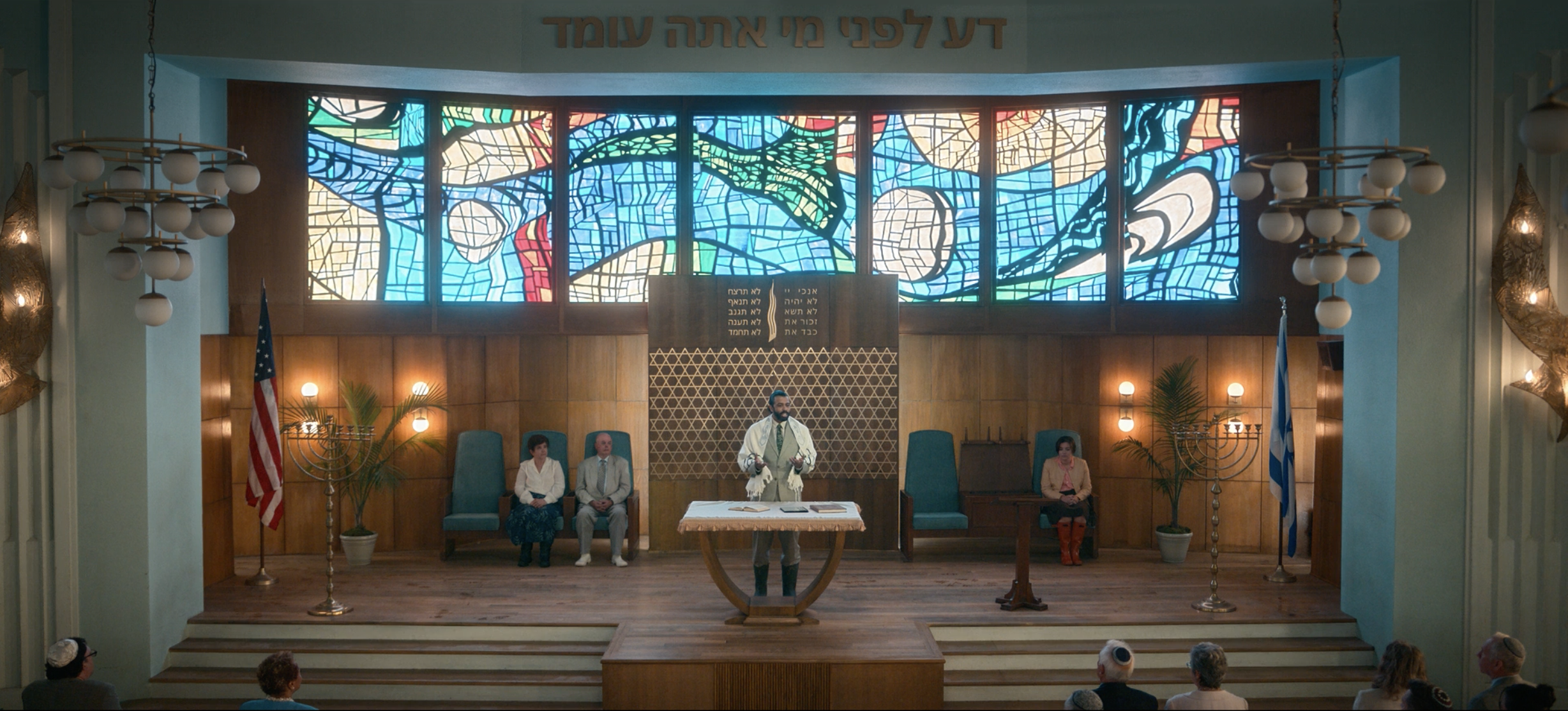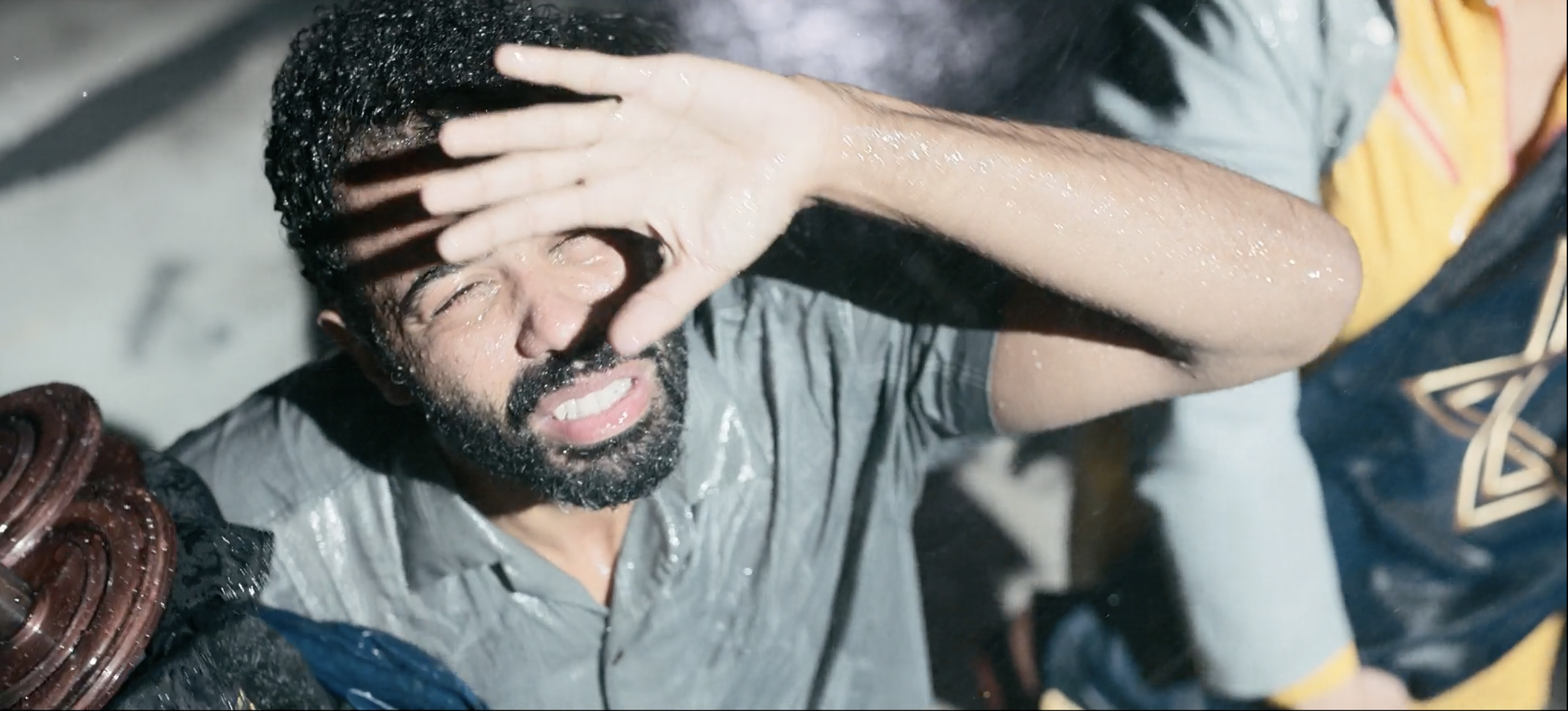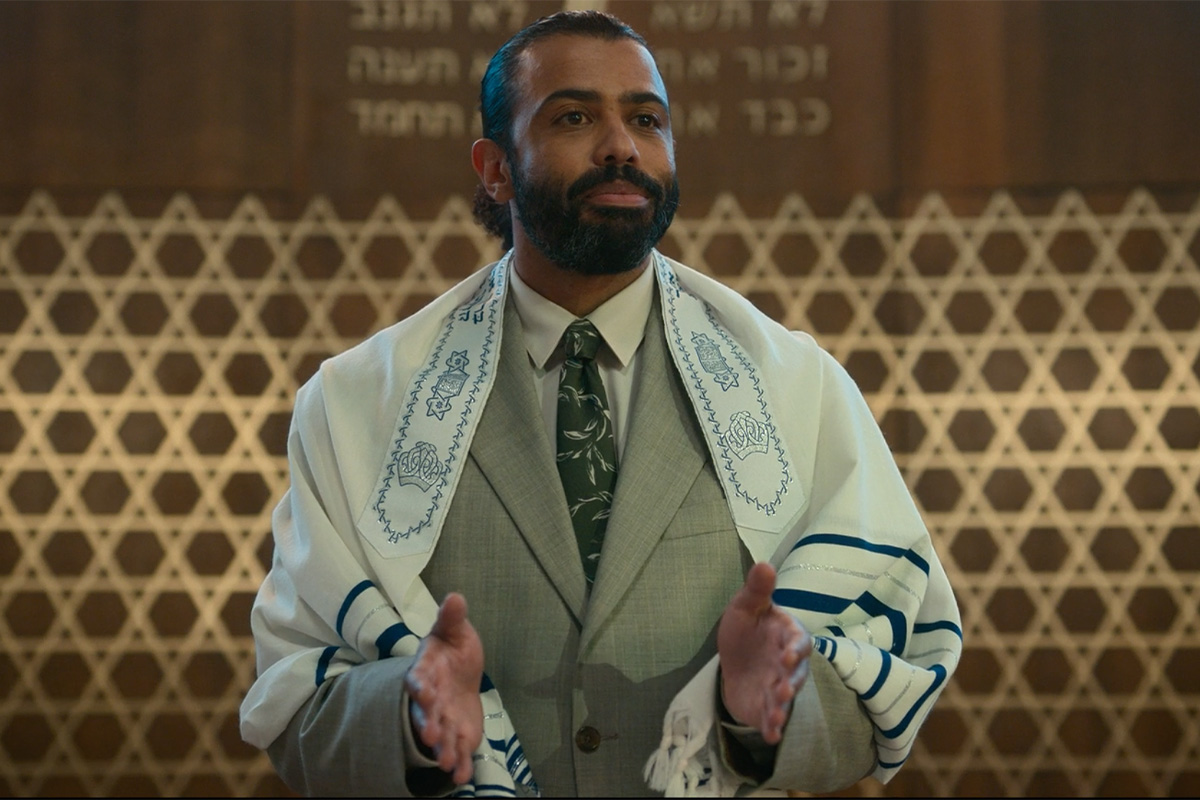Spoilers ahead for season one, episode three of “Extrapolations.”
When I first heard about the new Apple TV+ show “Extrapolations,” I assumed that the best thing about the series would be that Daveed Diggs plays a rabbi.
To be sure, the show as a whole looked great from the outset. “Extrapolations” boasts an ensemble cast full of star-power and a narrative that interweaves personal stories of the near-future with that of environmental catastrophe due to climate change. But I mean, come on. It’s Daveed Diggs as a rabbi. What could possibly be better than that?
Reader, I’m now here to tell you that I was only half-right.
While I was correct in that Daveed Diggs as Rabbi Marshall Zucker is spectacular, it’s just the tip of a very compelling (and hopefully not melting) iceberg. For an incredibly well done show, the whole of Zucker’s episode is the absolute pinnacle for me, succeeding in both the performances of its actors and its powerful telling of a futuristic Passover story.
Set during Passover 2047, “The Fifth Question” takes place 10 years after the series premiere. In the first episode, viewers had met a newly ordained Rabbi Zucker. The passionate Zucker had his heart set on serving a congregation in Tel Aviv and advocating for tikkun olam — healing the world. During his time there, we even see him quoting Elie Wiesel from the bimah in support of action to save the planet. But clearly, things have not worked out the way he intended. Instead, the rabbi is serving Temple Israel in his hometown of Miami, which requires pandering to public officials in hopes that the Department of Sea Level Mitigation will zone the synagogue to be saved from sea-level rise and flooding. “This year, my prayer is simple: that our leaders in Tallahassee will save this building and that next year, we will all be here together in Miami,” Rabbi Zucker announces to his congregation, in passionless contrast to his previous sermons.

Enter Alana Goldblatt (played masterfully by actress Neska Rose). The socially conscious tween, a perfect mix of the haggadah’s wise and wicked child, begins preparing for her bat mitzvah with Rabbi Zucker. But more often than not, their conversations turn into tense interrogations, with Alana questioning the rabbi about whether climate change is an expression of divine anger towards human sin. (Alana has a front row seat to this kind of sin thanks to dad Harris, a callous businessman played by David Schwimmer, who profits on climate disaster.)
“Why else would God be doing this?” Alana asks one day after Shabbat services.
Rabbi Zucker counters, “Doing what?”
“The sea level rise, the droughts, the refugees, the diseases. He’s angry, he has to be,” Alana responds.
Try as he might, Zucker never quite has the right answer to give Alana. And tensions are only increasing.
First, Harris bribes officials at the Department of Sea Level Mitigation, with Zucker’s knowledge. (Allowing Harris to do this isn’t an action Rabbi Zucker takes lightly, later having a stress dream in which he and Alana sing and dance to “Singin’ In the Rain” in the flooding sanctuary.) As a result the synagogue is saved, but it’s at the expense of a homeless shelter full of climate-displaced peoples when a massive hurricane is just about to make landfall in Miami. Then, Alana’s grandfather (Judd Hirsch) dies due to a nasty mosquito bite, and her dad is arrested for bribery during the shiva. Horrified by the state of the world and infuriated by the adults around her, Alana turns her bat mitzvah — and her Sodom and Gomorrah Torah portion — as a diatribe.
“Were they selfish? Were they cruel? Were they any different than us?” Alana asks her close family and friends, revealing that, tired of his behavior, she called the cops on her dad and is predicting that the category 4 storm will “wipe the planet clean” at God’s behest. Alana also plays a video she found of Zucker’s Elie Wiesel climate sermon for the crowd, reminding him of the kind of person he once was.
Deeply impacted by Alana’s own sermon, Rabbi Zucker resigns and goes home to wait out the storm. But he’s not gone for long. When the seawall in Biscayne Bay in breached, Zucker risks his life to return to the completely flooded synagogue to save the Torah scrolls. With the help of a plumber named Julia, Zucker carries the scrolls to the roof, in the torrential downpour, where a helicopter saves them all.

Flashing forward a few weeks or months, Zucker and Julia are now serving food in a displaced persons camp in a stadium in Tallahassee. “I guess we’re all homeless now, rabbi,” one of the unhoused people from the shelter in Miami quips as Zucker serves him a plate. “I’m sorry, Elijah,” the rabbi responds. (Elijah!!! Get it?!)
The episode ends with Alana approaching the table, revealing that she survived the storm as well. She asks the rabbi again why God seemingly won’t intervene with climate change, allowing humans to suffer. This time, Zucker references an interaction when Moses asks God why humans are allowed to suffer, to which God essentially answers, “I’d tell you, but you wouldn’t understand because you’re a human and I’m God.”
“That’s it? That’s the answer?” Alana resists.
“Being human? Yeah, it has to be,” Zucker responds.
Finally rendered question-less, Alana joins Rabbi Zucker to serve food as the pair hum “Singin’ in the Rain.”
Last year, I collected the 18 best Passover episodes on television for Hey Alma. This year, I can confidently say that “The Fifth Question” far surpasses all of the episodes on that list — even “A Rugrats Passover.”
This year, at Passover seder, as I dip my fingers in the wine and list the plagues of Egypt, I’ll no longer see them as metaphorical, biblical afflictions but rather as analogous to environmental collapse. When I say “Next year in Jerusalem” I will wonder when my family will be displaced from New York City by rising sea levels and where they will go in generations to come. And I’ll remember, in the words of Rabbi Marshall Zucker, that “being human,” or taking action, is the only way to liberate our planet from impending climate catastrophe.



